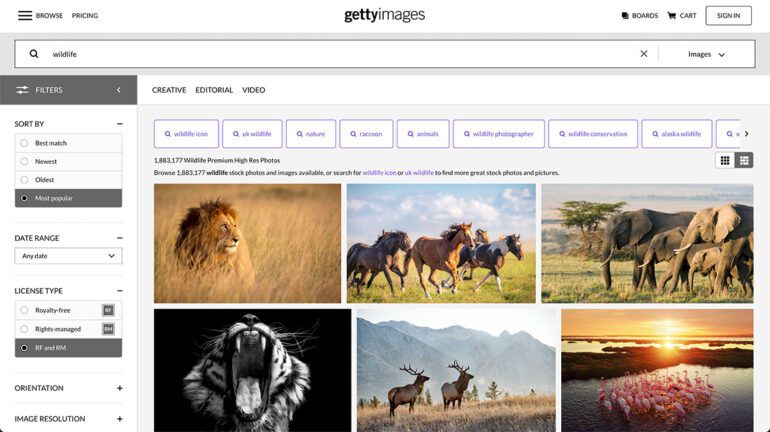TL;DR:
- Getty reaffirms rejection of AI-generated content, specifically mentioning Adobe in a recent email.
- Adobe’s Creative Cloud tools, including Firefly-powered AI features, are now subject to Getty’s ban.
- Getty’s email serves as a preemptive measure to a wide range of creators, with no specific content singled out.
- The method Getty employs to identify AI-generated content remains undisclosed.
- Getty’s policy extends to all Adobe Firefly-based tools, regardless of their potential use in enhancing existing images.
- The submission of 3D renders and the use of conventional digital editing tools are unaffected by Getty’s policy.
- In contrast to Getty, Shutterstock allows AI-generated content submissions and even supports a proprietary AI system.
- Shutterstock’s approach includes endorsements, legal protection, and financial compensation to photographers contributing to AI training.
Main AI News:
In its latest rejection of artificial intelligence, Getty makes a resounding statement against the encroachment of AI in the creative realm. Last year, Getty drew a clear line in the sand, stating that it would no longer entertain AI-generated content, a position it recently reiterated with even more precision.
In an exclusive email dispatched to Getty contributors, which was obtained by PetaPixel, the renowned stock photography agency stands firm against AI-generated models, singling out Adobe as a key player in this debate. The email underscores that Adobe’s newly introduced Creative Cloud tools, featuring the formidable Firefly-powered generative AI capabilities, are now included in the ban.
The email from Getty Images unequivocally declares, “Getty Images does not accept files created using AI generative models. This includes Adobe’s recently announced Creative Cloud tools, which are now available with its Firefly-powered generative AI tools built in.”
While Getty leaves room for potential policy adjustments in the future, this message is delivered as a precautionary note to a wide range of creators, without singling out any specific content uploads. The methodology employed by Getty to identify AI-generated imagery remains undisclosed; it could rely on file EXIF data or utilize an internal algorithm adept at detecting the distinctive traits of AI utilization.
Remarkably, Getty’s stance appears to encompass all Adobe Firefly-based tools, including Generative Fill and Generative Expand. This blanket approach applies despite the fact that these tools have the potential to enhance existing images rather than create entirely new ones. Getty seems resolute in its position and appears to prohibit the submission of both categories.
It’s worth noting that Getty’s policy does not impede the submission of 3D renders or the use of conventional digital editing tools like Photoshop and Illustrator for image enhancement and creation. This aspect of their policy, established last year, remains unchanged.
In contrast to its counterparts, Getty, a publicly traded entity, is steadfast in its commitment to preserving a library exclusively dedicated to authentic photography. This stance extends across all its sub-brands, including iStock. Notably, Shutterstock takes a different approach, permitting the submission of AI-generated content and even incorporating a proprietary system, powered by Dall-E, on its platform. The company has gone a step further by endorsing online influencers to promote the AI generator, offering legal protection to system users, and disbursing over $4 million to photographers through its AI contributor fund as compensation for their contributions to training the AI.
Conclusion:
Getty’s unwavering commitment to maintaining a repository of authentic imagery stands in stark contrast to industry peers like Shutterstock, which embrace AI-generated content. This decision signals Getty’s determination to preserve the integrity of its visual assets, potentially influencing the broader market’s perception of AI’s role in creative content generation.

